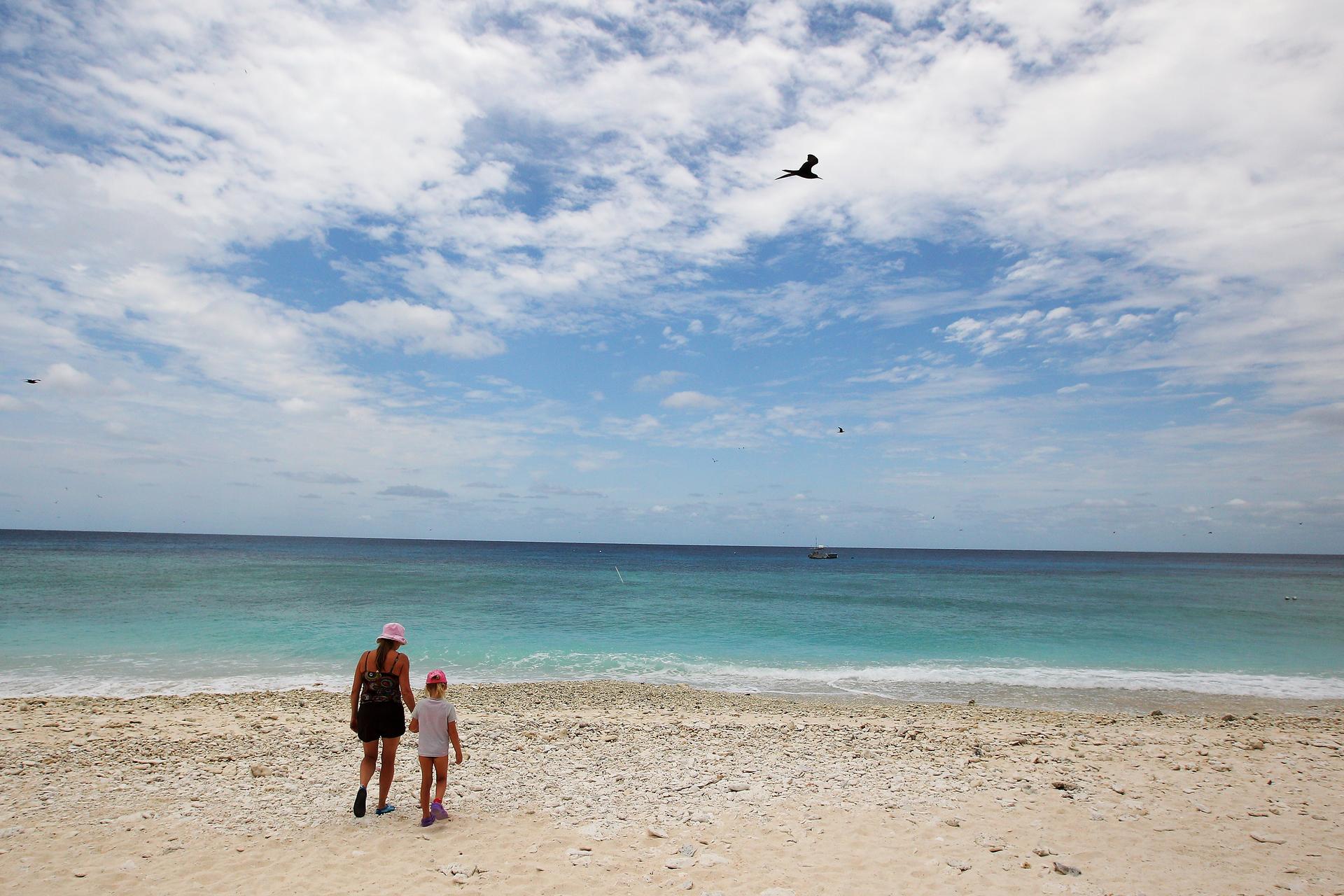Aussies getting poorer but smarter? Survey weighs Australian ‘wellbeing’
A woman and her daughter walk along the beach at Lady Elliot Island, a resort on the Great Barrier Reef.
And Aussies thought things were going so well.
A new survey has found that Australia's national disposable income took a big dive in the last few months of last year, and with it the nation's state of "wellbeing."
According to the Fairfax media's "Index of Australia's Wellbeing" (finally, a financial statistic we can all relate to), falling commodity prices helped cause the biggest drop in national income since the global financial crisis.
According to the report accompanying the survey: "National disposable income shrank 0.9 per cent in the December quarter but a boom in kindergarten enrollments meant the nation's stock of human capital — the knowledge and capability of its people — grew 1.7 per cent, helping to narrow the decline in total wellbeing to 0.5 per cent."
So, Aussies are getting poorer, albeit a little smarter … is what we think that means. Sounds like an acceptable tradeoff, right?
(More from GlobalPost: Tough times for Aussie billionaires)
Not so fast, says the lead author of the Index, Nicholas Gruen, who told Fairfax that: "We may be looking at the first signs of the luck running out. It looks like we're just not going to get the free kicks we got for the last decade and a half.''
The survey goes on to cite economists as saying that Australia's terms of trade boom — the value of exports versus the cost of imports — has peaked, "meaning weaker growth ahead in living standards."
That doesn't sound good, does it.
Well again, no need to jump to conclusions, say the Index authors, who in coming to a statistical measure of Australia's "wellbeing" take national income only as a starting point, then adjust "for changes in the nation's education, health, inequality, environment and job satisfaction."
On the positive side, the report says, Australia's wellbeing has received "a boost from evidence that the children of a mini baby 'boomlet' in the past decade have begun to attend school and build their human capital."
Thankfully, the meaning of this so-called boomlet is promptly explained to those us who arrived on the planet well before such a phrase as "human capital" probably existed.
Fairfax quotes Glenn Withers, the former head of Universities Australia, as welcoming the surge in kindergarten enrollments.
''That is a great investment in human capital. Improved capabilities at an early age are for life and pay off handsomely for the country and the families. In crude economic terms, monies spent in this area have rates of return higher than mineral investments and spread the benefits widely.''
So there you go — Down Under feels poorer but smarter already.
We’d love to hear your thoughts on The World. Please take our 5-min. survey.
